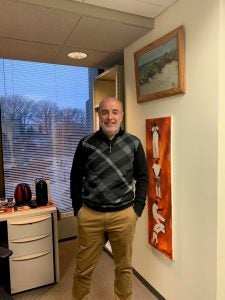PAHO/WHO Collaborating Centre Spotlight Series
Reference Number: ARG-34
Official Title: PAHO/WHO CC in Knowledge Management
Institution: Departamento de Informática en Salud, Hospital Italiano de Buenos Aires
Reference Number: SPA-50
Official Title: PAHO/WHO CC in eHealth
Institution: Faculty of Health Sciences; Universitat Oberta de Catalunya (UOC)
Category 4 (SP 14-19)
Outcome 20 (SP 20-25)
Mr. Marcelo D’Agostino, Senior Advisor, Information Systems for Health, is the PAHO staff member who acts as the Region’s focal point to coordinate the collaboration between the institution and the Organization.
The main activities of these Centres include: (1) providing technical advice for the development of the Information Systems for Health Framework (IS4H); (2) producing technical documents for the IS4H Toolkit; (3) developing and delivering training courses on PAHO’s Virtual Campus for Public Health; (4) providing training and technical advice on the delivery of telemedicine; and (5) conducting research on the use of Information and Communications Technologies (TICS) for vulnerable populations.
Both Collaborating Centres have provided technical advice to develop the Information Systems for Health (IS4H) Framework which outlines the strategic goals focused on data management and information technologies, management and governance, innovation and performance, and knowledge management. The two Centres have also contributed to the IS4H toolkit, including developing conceptual models, frameworks, knowledge capsules, factsheets, workshops and assessment tools etc.
The Centre at the Departamento de Informática en Salud has developed two training courses through PAHO’s Virtual Campus called eSalud para Gestores y Tomadores de Decisión and Acceso y Uso de la Información Científica en Salud.
The Centre at the Faculty of Health Sciences has produced a publication on the training of telemedicine in the Region. In terms of research, this Centre is in the process of publishing research on the use of TICS for vulnerable groups, especially among indigenous populations, by conducting a “writeshop” which was led by both Collaborating Centres.
Mr. D’Agostino notes “it is important to have the support and expertise of these Centres as they have the necessary human resources and knowledge to carry out the implementation of the activities and fill the gaps that are currently present across the Region.”
Webnotes such as these serve to inform how Collaborating Centres are contributing to the Organization’s priorities and mandates.


